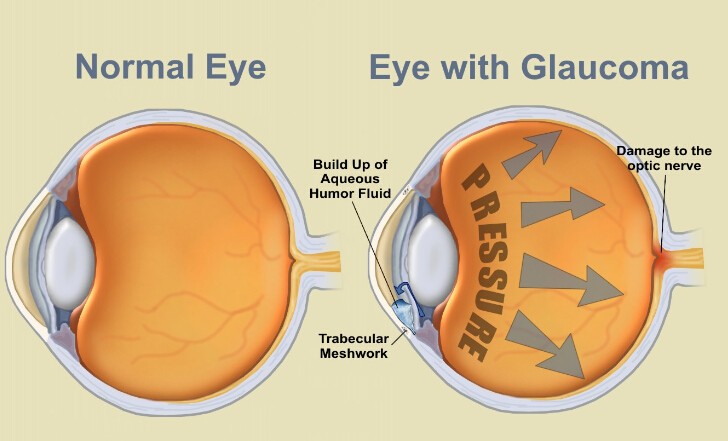
Glaucoma is one of the leading causes of blindness with almost 65 million sufferers worldwide, especially for people over 60 years old. Most people have no symptoms and no early warning signs when glaucoma develops, and that’s why half of people don’t know they have glaucoma. However, the sight will be lost gradually (from peripheral/side vision to the straight-ahead/central vision) if it’s left unnoticed and untreated early. Though there is no cure (yet) for glaucoma, learning the glaucoma and accepting early detection and treatment usually are necessary which may help keep your vision.
What is glaucoma?
Glaucoma is a group of eye diseases and happens when extra fluid increases the pressure in the eye and causes damage to the optic nerve fibers. There are several types of glaucoma:
- Primary open-angle glaucoma (most common form of glaucoma)
- Normal-tension glaucoma
- Angle-closure glaucoma
- Secondary glaucoma
- Pigmentary Glaucoma
- Pseudoexfoliative Glaucoma
- Traumatic Glaucoma
- Neovascular Glaucoma
- Irido Corneal Endothelial Syndrome (ICE)
- Congenital glaucoma (Childhood Glaucoma)
Glaucoma Symptoms
Actually, most types of glaucoma have no early warning signs or symptoms, except angle-closure glaucoma which may result in some sudden changes in your body include:
- Sudden blurred vision
- Severe eye and head pain
- The appearance of rainbow-colored rings or halos around lights
- Nausea and vomiting
- Increasing Cup-to-Disc ratio
Causes of Glaucoma
Everyone is at risk of glaucoma. It can be hereditary or caused by another eye conditions or diseases, such as eye injury, inflammation, abnormal blood vessel formation from diabetes or retinal blood vessel blockage, use of steroid-containing medications, and pigment dispersion. Contacting your eye doctor to make sure the exact diagnosis and getting the possible treatment options would be a good way to protect your eyes.
Some people with glaucoma have low vision which means there may be problems doing daily, routine things even if using glasses or contact lenses. A variety of low vision products are available to help people for further independence, including CCTV magnifiers and computer text enlarger software.

